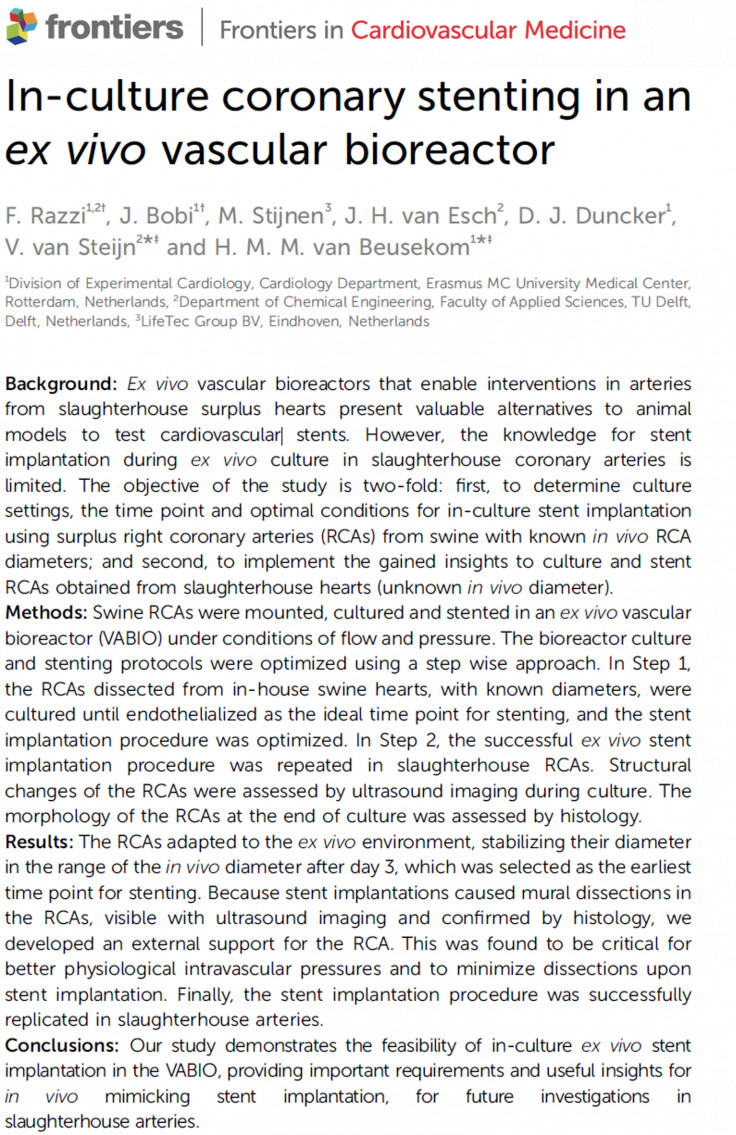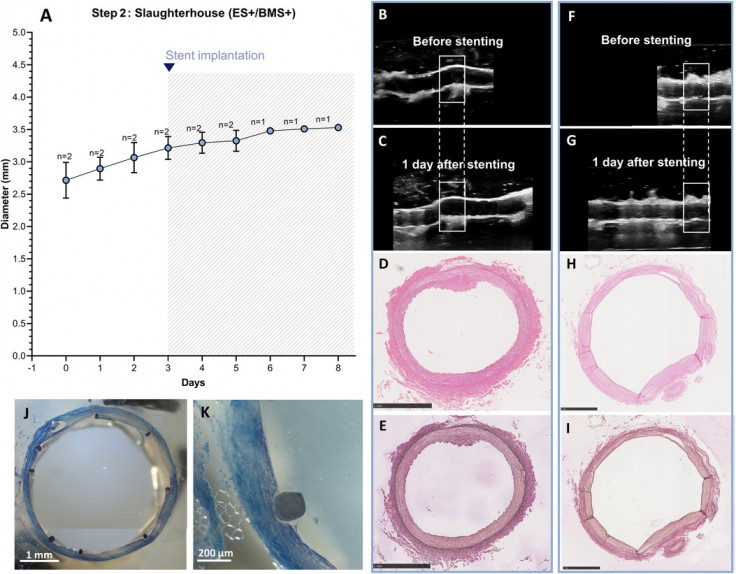Traditionally, new stent technologies are tested in animal models to assess their safety and efficacy. But researchers from Erasmus MC, TU Delft, and LifeTec Group believe this approach needs to change. With support from ZonMW, they’ve committed to developing animal-free vascular and cell culture models that mimic both healthy and diseased human blood vessels. Their goal: to make stent research not only more ethical, but also faster and more predictive.
What Is the VABIO?
The VABIO is a perfusion-based bioreactor system designed to keep blood vessels alive and functioning outside the body. It mimics the flow and pressure conditions of the human circulatory system, allowing researchers to study how devices like stents behave in a controlled, repeatable environment. It’s a powerful tool for bridging the gap between benchtop testing and in vivo studies.
In their latest publication, the team demonstrates the feasibility of in-culture stent deployment using the VAscular BIOreactor (VABIO) developed by LifeTec Group. This system allows researchers to perfuse and maintain blood vessels ex vivo under realistic flow and pressure conditions—mimicking the mechanical environment of the human body.

The study focused on coronary arteries harvested from slaughterhouse pig hearts, exploring whether these ethically sourced vessels could serve as a reliable alternative to those obtained from laboratory animals. The researchers successfully cultured the arteries and deployed stents within them, gathering practical insights into the conditions required to simulate in vivo behaviour.
Overcoming a Key Challenge: Preventing Dissections
Early experiments revealed a critical issue: the coronary arteries were prone to mural dissections after stent placement, which compromised vessel integrity and disrupted the testing process. Rather than abandon the model, the team developed a support strategy to stabilize the vessels without interfering with their physiological response. This adjustment proved essential for maintaining viable tissue and enabling successful stent implantation.

Why It Matters
The results show that slaughterhouse-derived coronary arteries behave comparably to those from lab animals when cultured in the VABIO system. This finding supports the use of ethically sourced tissue in preclinical cardiovascular research—reducing reliance on live animal models while maintaining scientific rigor.
By combining advanced bioreactor technology with surplus biological material, the team is paving the way for a new generation of predictive, scalable, and humane testing platforms. Their work contributes directly to the broader goals of the ZonMW Coronary Stent-in-a-Box and -on-a-Chip initiative, which aims to accelerate innovation in cardiovascular medicine through smarter, animal-free research.
📄 Read the full publication: https://www.frontiersin.org/journals/cardiovascular-medicine/articles/10.3389/fcvm.2025.1565674/full